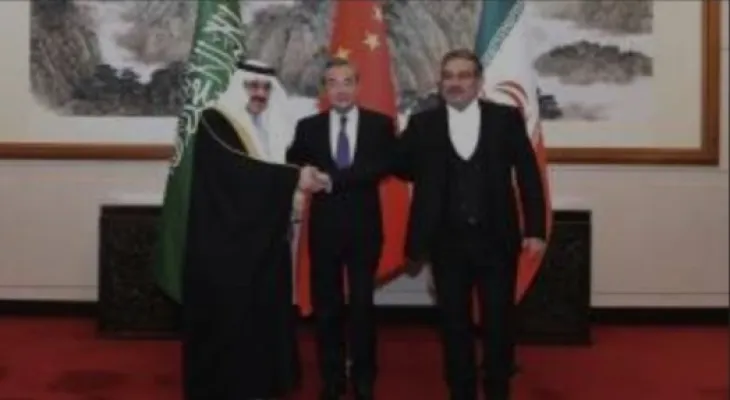Search here
Newspaper
Search here

Arab Canada News
News

Published: March 11, 2023
Syria welcomed on Saturday the agreement reached between Iran and Saudi Arabia to restore diplomatic relations and reopen their embassies, saying it would lead to greater stability in the region.
Iran has been the main supporter of President Bashar al-Assad’s government, while Saudi Arabia supports opposition fighters trying to remove him from power.
On Friday, Iran and Saudi Arabia agreed to restore diplomatic relations and reopen their embassies after seven years of tension. The major diplomatic breakthrough negotiated with China reduces the likelihood of armed conflict between the regional rivals, either directly or in proxy wars.
The deal was also concluded in Beijing amid the Chinese National People’s Congress festivities, representing a major diplomatic victory for the Chinese as the Gulf Arab states see the United States slowly withdrawing from the wider Middle East. It comes at a time when diplomats are trying to end the long conflict in Yemen, where Iran and Saudi Arabia have become deeply entrenched.
Israeli Prime Minister Benjamin Netanyahu wanted to normalize relations with Saudi Arabia, but the agreement with Iran, Israel’s archrival, will complicate that. It could also make Israel feel more isolated if it decides to strike Iran’s nuclear program as it nears weapons-level capabilities.
It was not immediately clear whether the agreement between Saudi Arabia and Iran would help end the political deadlock in Lebanon, where the country has been run by a transitional government since President Michel Aoun’s term ended in late October. Lebanon has been without a president since then amid deep divisions in parliament.
The powerful Iran-backed Hezbollah group earlier this week said it supports Christian politician Suleiman Frangieh to become the next president of the country, but reports emerged that Saudi Arabia opposes the group’s ally becoming president.
Lebanon is also in the grip of the worst economic and financial crisis in its modern history. It is rooted in decades of corruption and mismanagement by the political class that has run the small state of 6 million people, including 1 million Syrian refugees, since the end of the 1975-90 civil war.
Countries including the oil-rich Gulf states said they would help Lebanon once the country implements reforms, which could unlock billions of dollars in investments and loans.
The Syrian Foreign Ministry also welcomed the agreement in a statement describing it as “an important step that will enhance security and stability in the region.”
It added that the agreement will also lead to cooperation that would “positively reflect on the common interests of the peoples of the two countries in particular and the peoples of the region in general.”
After the February 6 earthquake that struck Turkey and Syria, killing more than 50,000 people including more than 6,000 in Syria, Saudi Arabia was one of several Arab countries that provided aid to government-held areas in Syria.
The Saudi Foreign Ministry acknowledged this week that there is a “growing consensus” among Gulf countries and other Arab states that isolating Damascus is not effective and that dialogue is necessary, as Syria’s membership in the Arab League, a union of Arab administrations, was suspended in 2011 due to its brutal suppression of protesters.
Comments